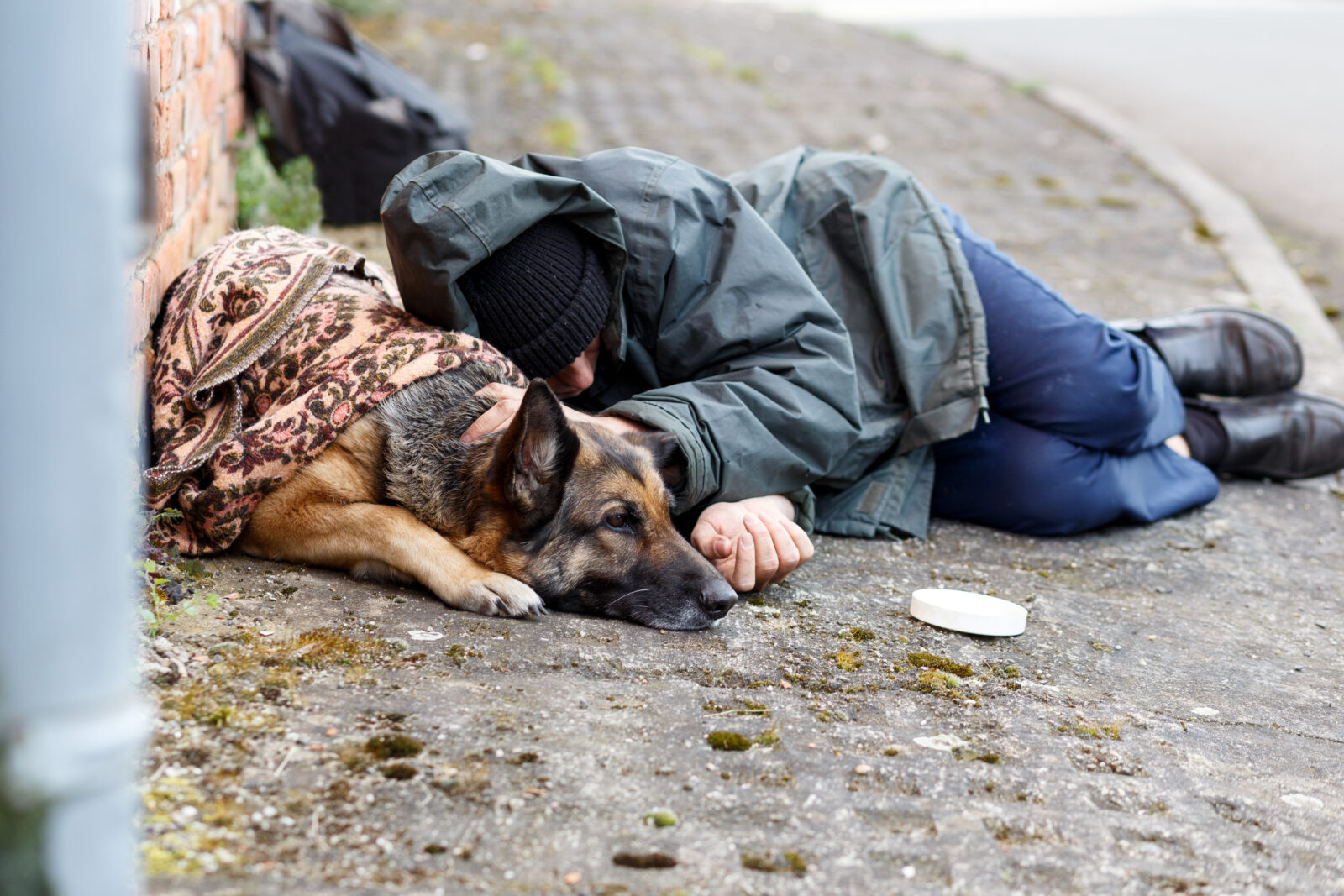Beyond the “Vets, Pets, and Kids” View of Homelessness
John F. Kennedy on May 25, 1961, proposed to Congress that the US “should commit itself to achieving the goal, before this decade is out, of landing a man on the Moon and returning him safely to the Earth.” He later said the attempt was worthwhile not because it would be easy but because it would be hard, because the effort “will serve to organize and measure the best of our energies and skills, because that challenge is one that we are willing to accept and . . . intend to win.”
This column starts my third year of weekly writing about homelessness, with the goal of learning, teaching, and eventually turning the columns into a book. Both human interest and intellectual interest propel me. I’ll start with the human interest and the two words “suffered enough.” That’s a common expression. A T-Shirt declares in capital letters, “I HAVE SUFFERED ENOUGH.” A band calls itself “Suffered Enough.” A book title asks, “Have You Suffered Enough?” A headline announces, “You Have Suffered Enough. Your Miracle Is Around the Corner.”
The expression comes to mind every time I live in a homeless shelter for a few days and ask residents about their pasts. On day one they tell me about a particular incident — a run-in with police, an unsuccessful operation, a firing at work. On day four they’ll tell me about childhoods with fathers who disappeared, mothers who were neglectful, or foster care movement from house to house so there was no place like home. Day four is when they become real individuals to me, not part of “the homeless.” Day four is when I think, “they’ve suffered enough,” when I hope and pray that they’ll do well in the long twilight struggle of their remaining years.
I know, of course, that people sometimes flash a suffering get-out-of-jail-free card. David Paterson, who in 2008 became New York’s governor when sex-scandaled Eliot Spitzer resigned, said, “I am a very dear friend of Governor Spitzer . . . I think he’s suffered enough.” A decade later a judge sentenced to eight months in prison for accepting bribes “choked up . . . saying he’d suffered enough.” Those who have suffered should make restitution to those they hurt, but now that I’ve lived with some homeless people I see most more as victims than victimizers.
It’s particularly poignant when a few homeless shelter residents deal with the DEF of life — divorce, estrangement, failure — by manufacturing, and apparently believing, personal stories that staff members or newspaper accounts contradict. Each time I wonder: Should I confront them with the truth and suggest that they shake off their fantasies? Staffers who want to avoid trouble usually recommend against doing that, but another reason beyond self-protection appeals to me more: They have suffered enough.
So human interest propels me, but intellectual interest does as well. Austin pastor Mark Hilbelink, a leader in church and city homelessness programs for nine years (others burn out after two), rightly calls homelessness “the wickedest problem.” He doesn’t mean that it involves total depravity, but that it’s exceptionally hard to solve. Hilbelink knows the “vets, pets, and kids” media approach — highlight the most sympathetic among the homeless — is not truthful, nor is the opposite tendency to consider human beings subhuman. It’s “wicked hard,” as my fellow native Bostonians would say, to learn how to help without hurting.
And yet, I hope to walk readers through a head-and-heart look at homelessness that will suggest some ways our culture and public policy should change. I’ve written thirty books, most of them about different aspects of America history, and with my 74th birthday looming next week I’m looking at this hardest of topics as my last rodeo. Some of my books and columns over the year have been calf-roping. Writing about homelessness is bull-riding.
In this column during the next few months, I’ll alternate street-level reporting with summaries of what the academic journals show (so you don’t have to wade through them). Along the way I’ll tuck in a few more history lessons and my experience living in one more homeless shelter. This is heading to the big question: How we can help the next generation avoid the sins of the fathers?
